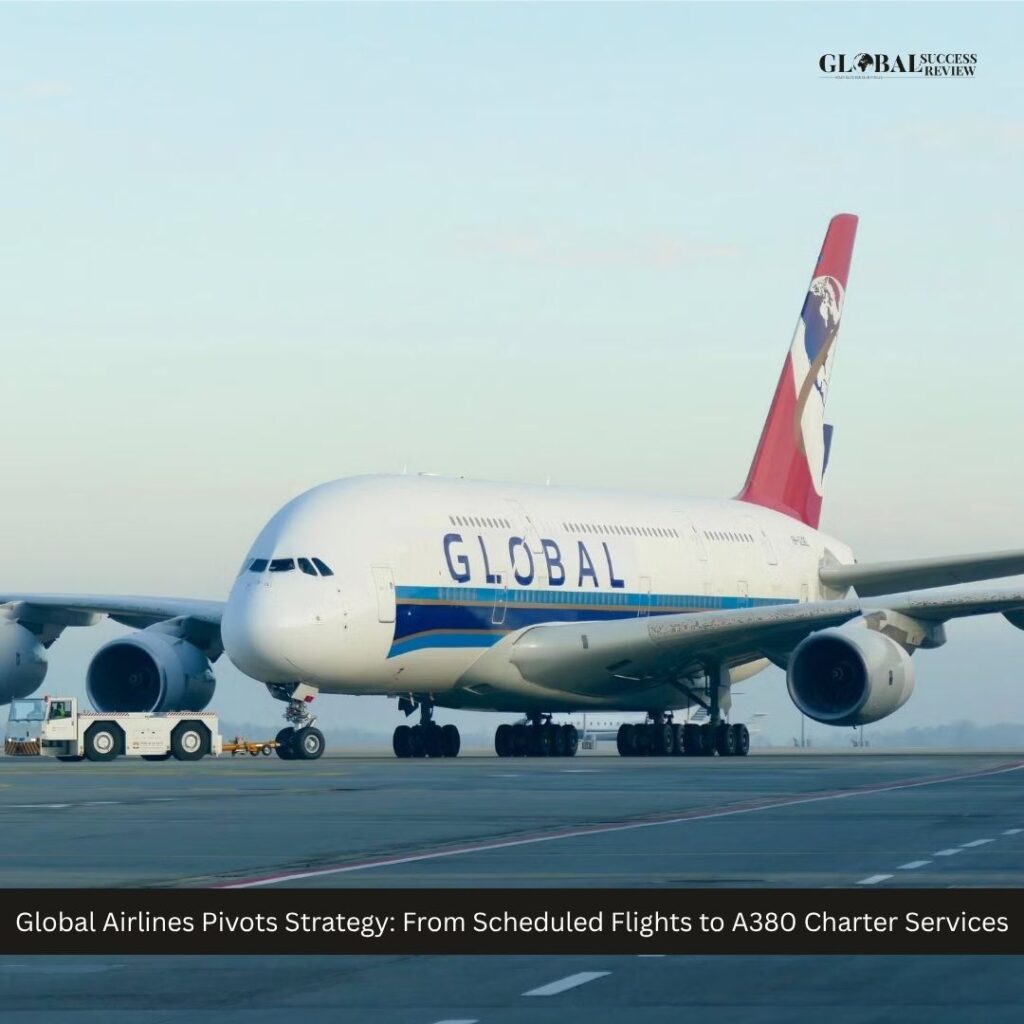Published by Global Success Review Magazine | May 30, 2025
In a strategic turn that’s reshaping its operational roadmap, UK-based aviation startup Global Airlines is transitioning away from its initial vision of launching scheduled commercial flights and is instead embracing a flexible charter-based business model.
Founded by former investment banker James Asquith, Global Airlines had initially planned to revive the iconic Airbus A380 for regular passenger service under its own brand. However, after completing two high-profile demonstration flights earlier this May, the company is now expected to adopt the ACMI (Aircraft, Crew, Maintenance, and Insurance) model, offering its aircraft for lease to other operators.
Milestone Flights & Leasing Model
The airline’s pivot follows the successful execution of its first two commercial demonstration flights using its sole Airbus A380, formerly operated by China Southern Airlines. The inaugural flight took off on May 15, flying from Glasgow to New York JFK, and a second followed on May 21, from Manchester to JFK. Both flights were operated in partnership with Portuguese wet-lease specialist Hi Fly, as Global Airlines continues to work toward securing its own UK Air Operator Certificate (AOC).
The aircraft, registered 9H-GLOBL, has retained much of its original interior but has undergone modest reconfiguration to prepare it for its new charter role.
Saudi Investment & Fleet Expansion Plans
According to a report by Arabian Aerospace, Global Airlines is currently in advanced discussions with Kingdom Holdings, the Riyadh-based investment conglomerate chaired by Prince Alwaleed bin Talal Al Saud. This strategic partnership could provide the capital needed to expand the airline’s A380 fleet.
The plan includes the acquisition of three additional Airbus A380s, which have already been identified and are under negotiation. Should the deal proceed, Global Airlines would become the world’s first dedicated A380 ACMI operator, a niche yet potentially lucrative position within the evolving global aviation market.
Market Dynamics & Opportunity
The shift in strategy aligns with a growing trend in the aviation industry. Airlines around the world are experiencing delays in new aircraft deliveries from manufacturers such as Airbus and Boeing, sparking increased demand for short- and medium-term leasingg of wide-body aircraft.
Once considered commercially impractical for many routes due to their size and cost, aircraft like the Airbus A380 are now finding new relevance in charter and ACMI roles, especially for carriers looking to quickly expand capacity without committing to long-term investments.
While Global Airlines originally captured industry attention with its ambitious plan to reintroduce scheduled A380 services, regulatory complexities, high operational costs, and the challenge of maintaining consistent passenger loads have led the airline to refocus on more adaptable and financially sustainable business strategies.
Looking Ahead
With market demand shifting and strategic investors showing interest, Global Airlines’ repositioning could mark a new chapter for the Airbus A380, demonstrating that even the largest passenger aircraft ever built still has a valuable role to play in modern aviation, just in a different capacity.
As the company eyes expansion and a new fleet of superjumbos, all eyes are on whether this bold pivot will redefine the future of high-capacity aircraft in the charter aviation space.



















